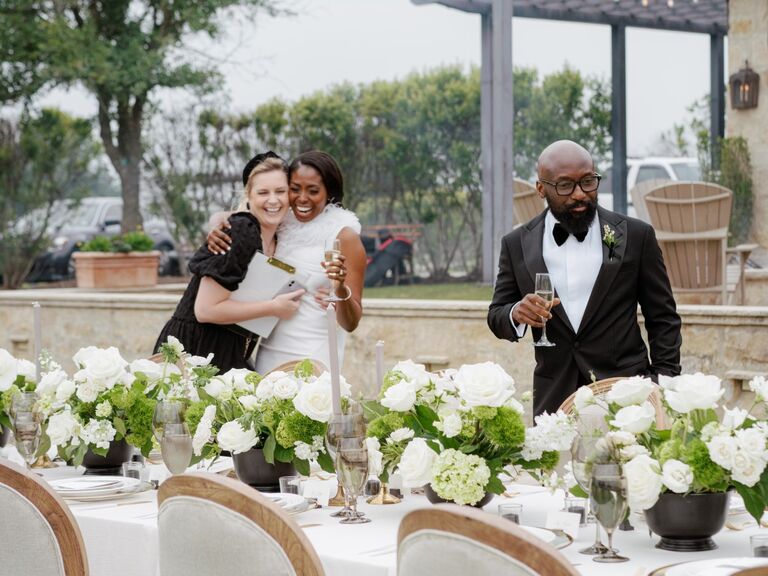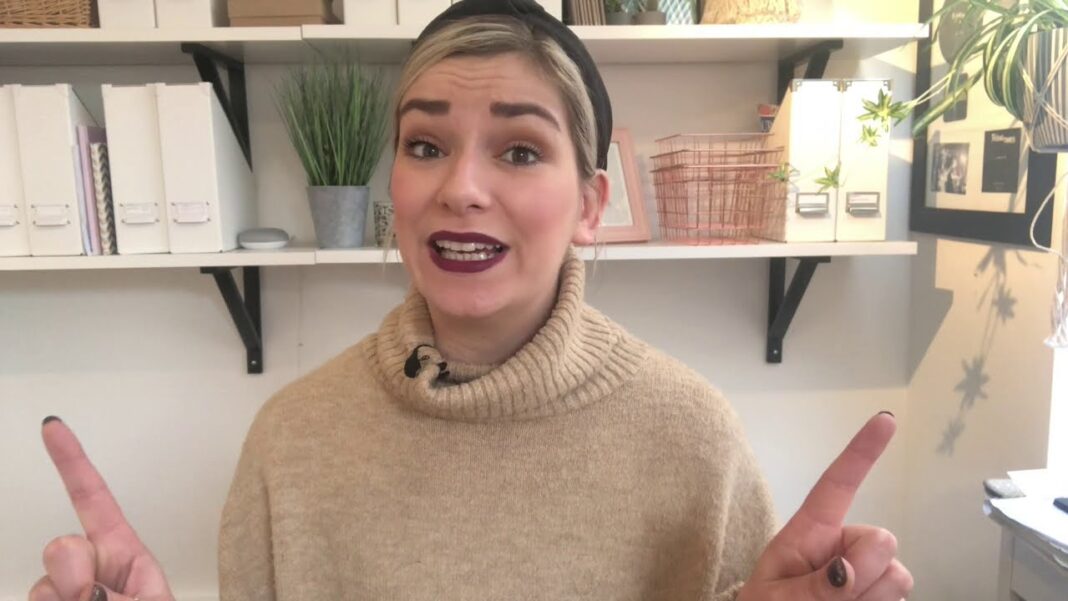Every couple dreams of a perfect wedding, filled with love, happiness, and unforgettable memories. But planning a wedding can be overwhelming and stressful, especially when you have to consider every little detail. This is where wedding planners come in. They are the experts who can turn your dream wedding into a reality while relieving you of all the stress and hassles.
As a professional wedding planner myself, I have seen firsthand the difference a good planner can make in creating a flawless wedding experience. That’s why I have reached out to some of the top wedding planners in the industry to share their best tips for a perfect wedding.
In this blog post, we will dive into the minds of these experienced planners and learn about the key elements that contribute to a successful wedding. From selecting the right venue to personalizing the entire experience, these planners have shared their valuable insights to help you plan the wedding of your dreams. So let’s get started!
Selecting the Right Venue
The wedding venue sets the tone for the entire event, so it’s crucial to choose the perfect one. However, with so many options available, it can be challenging to find the one that fits your vision and budget. Here are some expert tips from our wedding planners to help you select the right venue for your special day.
Determine Your Budget
Before you start looking at venues, it’s essential to determine your budget first. This will give you a clear idea of how much you can afford to spend on the venue, including catering, decorations, and other services. Be realistic with your budget and make sure to include all the necessary expenses.
One helpful tip from wedding planner Sarah Smith is to allocate 50% of your budget to the venue. “The venue is the foundation of your wedding, and everything else will revolve around it,” she says. “So make sure to allocate a significant portion of your budget to the venue to ensure you get the best one within your means.”
Consider Your Guest List
The size of your guest list will play a significant role in determining the type and size of the venue. Make sure to have a rough estimate of the number of guests you will be inviting before you start looking at venues. You don’t want to end up with a venue that is too small or too big for your guest list.
Wedding planner Emily Jones advises, “Always consider your guest list when choosing a venue. A crowded venue can make your guests uncomfortable, and an overly spacious one can make your wedding look empty. So make sure to have a clear idea of your guest list before making any decisions.”
Think About the Theme
If you have a specific theme in mind for your wedding, it’s essential to choose a venue that complements it. For example, if you’re planning a rustic-themed wedding, a barn or farm venue would be a perfect choice. On the other hand, if you’re going for a more elegant and formal theme, a ballroom or hotel venue would be more suitable.
Wedding planner Rachel Johnson suggests, “Think about the overall theme and vibe you want for your wedding and choose a venue that aligns with it. This will create a cohesive and visually appealing experience for you and your guests.”
Consider Accessibility and Amenities
When selecting a venue, it’s crucial to think about practicality as well. Is the venue easily accessible for your guests? Does it have enough parking spaces? Are there enough restrooms? These are some essential factors to consider to ensure the comfort and convenience of your guests.
Another important aspect is the amenities provided by the venue. Some venues offer full-service packages that include catering, decorations, and even a wedding coordinator. Others may only provide the space, and you’ll have to bring in all the services yourself. Make sure to ask about the amenities and services included in the venue package before making your decision.
Do Your Research
Once you have a few potential venues in mind, it’s time to do some research. Browse through their websites and social media pages to see pictures of previous weddings held at the venue. This will give you an idea of how the space can be transformed and what to expect on your big day.
Another helpful tip from wedding planner Amy Miller is to read reviews from previous clients. “Reviews can give you honest insights into the venue’s strengths and weaknesses. It can also help you decide if the venue is right for your wedding or not.”
Managing the Budget Effectively

Weddings can be expensive, and it’s easy to get carried away with all the different aspects that need to be considered. That’s why it’s essential to manage your budget effectively to ensure a stress-free planning process. Here are some tips from our wedding planners to help you stay within your budget while still having the wedding of your dreams.
Prioritize Your Must-Haves
It’s normal to have a wishlist for your wedding, but it’s essential to prioritize your must-haves and focus on them first. This way, you can allocate your budget accordingly and make sure that you have everything you really want for your special day.
Sarah Smith advises, “Sit down with your partner and make a list of your top priorities for the wedding. This could be anything from a specific venue to a particular photographer or a live band. Once you have your list, allocate your budget accordingly and focus on fulfilling those must-haves first.”
Consider Alternative Options
If you find that some of your must-haves are stretching your budget, don’t be afraid to consider alternative options. For example, instead of hiring a full-service caterer, you could opt for a buffet-style meal or even have a food truck. Instead of ordering expensive flowers, you could opt for DIY decorations or use more affordable alternatives like candles or greenery.
Emily Jones shares an excellent tip, “Think outside the box when it comes to your wedding expenses. There are always alternative options that can save you money without compromising on quality.”
Negotiate with Vendors
Don’t be afraid to negotiate with your vendors to get the best deals and stay within your budget. Some vendors may be willing to offer discounts or package deals if you book multiple services with them. Others may be open to negotiating prices, especially if your wedding is during the off-season or on a weekday.
Rachel Johnson suggests, “Always try to negotiate with your vendors, but do it respectfully. Remember that they are professionals providing a service, so don’t lowball them. Instead, explain your budget constraints and see if they can work with you to find a solution.”
Keep Track of Your Spending
It’s essential to keep track of your spending throughout the planning process. This will help you stay within your budget and avoid any surprises when the final bill comes in. You can create a simple spreadsheet or use a budgeting app to monitor your expenses and make adjustments whenever necessary.
Amy Miller advises, “Make sure to have a budget sheet or app where you can keep track of all your wedding expenses. This will also help you identify areas where you may be overspending and make adjustments accordingly.”
Choosing Reliable Vendors

Good vendors are crucial to the success of your wedding, as they play a significant role in bringing your vision to life. That’s why it’s essential to choose reliable vendors who can deliver quality services and meet your expectations. Here are some tips from our wedding planners on how to choose the right vendors for your special day.
Do Your Research
When it comes to choosing vendors, it’s crucial to do your research before making any decisions. Look for recommendations from friends and family, browse through wedding directories, and read reviews from previous clients. This will give you an idea of the vendors’ expertise, style, and reputation.
Sarah Smith suggests, “Take your time to research different vendors and read reviews before reaching out to them. You want to make sure that you are working with reliable professionals who can deliver quality services for your wedding.”
Meet in Person
Once you have a few potential vendors, schedule meetings with them to discuss your wedding vision, budget, and expectations. Meeting in person will give you a better understanding of their personalities and work ethics. It will also allow you to ask questions and clarify any doubts or concerns you may have.
Emily Jones advises, “It’s essential to meet your vendors in person before making any decisions. This way, you can get a feel for their personalities and see if they are a good fit for your wedding.”
Ask for References
Don’t be afraid to ask for references from previous clients when meeting with vendors. This will give you a better idea of their past work and what to expect from them. If a vendor is hesitant to provide references or has no previous experience, it’s best to look for someone else.
Rachel Johnson shares, “Asking for references is a great way to get honest feedback about a vendor’s services. It’s also a good opportunity to see their work in person and decide if it aligns with your vision for the wedding.”
Sign Contracts
Always make sure to sign contracts with your vendors to protect yourself and your wedding. A contract should include all the details about the services provided, fees, payment schedules, and cancellation policies. It’s always better to have everything in writing to avoid any misunderstandings or conflicts later on.
Amy Miller advises, “Never work with a vendor who doesn’t provide a contract. This is a red flag that they may not be reliable or professional. Make sure to go through the contract carefully and ask for clarification if needed before signing.”
Creating a Detailed Timeline
A detailed timeline is essential to keep the wedding planning process on track and ensure that everything runs smoothly on the big day. This includes everything from booking vendors to sending out invitations and making final payments. Here are some tips from our wedding planners to help you create a detailed timeline for your wedding.
Start Early
The earlier you start planning, the better. Make sure to give yourself enough time to research, book vendors, and make all the necessary arrangements. This will not only relieve you of any last-minute stress but also allow you to explore different options and make changes if needed.
Sarah Smith advises, “It’s best to start planning at least a year in advance, especially if you have a specific date or venue in mind. This will give you enough time to make all the arrangements and avoid any disappointments.”
Communicate with Your Vendors
Effective communication with your vendors is crucial to creating a detailed timeline for your wedding. Make sure to keep them updated on any changes or decisions you make along the way. This will help them plan accordingly and ensure that everything is ready for your big day.
Emily Jones shares, “Good communication is key to a successful wedding. Make sure to keep your vendors in the loop and inform them about any changes or updates to your plans.”
Include Buffer Time
It’s essential to include buffer time in your timeline to account for any unexpected delays or issues. This could be anything from bad weather to a vendor running late. Make sure to allocate extra time between different events to allow for any possible delays.
Rachel Johnson suggests, “Always include buffer time in your timeline, especially on your wedding day. This will ensure that you have enough time to deal with any emergencies or last-minute changes without feeling stressed or rushed.”
Prepare a Checklist
A checklist can be a handy tool in creating a detailed timeline for your wedding. It will help you keep track of all the tasks that need to be done and ensure that nothing is forgotten. You can create a checklist for each month leading up to your wedding day, with specific tasks and deadlines for each.
Amy Miller advises, “A checklist is a must-have when planning a wedding. It will help you stay organized and on top of everything, even when things get hectic.”
Personalizing the Wedding Experience
Your wedding should be a reflection of you as a couple, so it’s essential to personalize every aspect of it. This will not only make your wedding unique and memorable but also create a more meaningful experience for you and your guests. Here are some tips from our wedding planners on how to add a personal touch to your special day.
Include Meaningful Décor
Incorporating meaningful décor elements in your wedding can add a personal touch and make it more special. This could be anything from using family heirlooms as centerpieces to displaying photos of your relationship throughout the venue. These small details may seem insignificant, but they can make a big difference in creating a personalized experience for you and your guests.
Sarah Smith shares an example, “I once had a couple who used vintage tea cups and saucers from their grandmothers as table decorations. It added a personal and sentimental touch to their wedding, and their guests absolutely loved it.”
Write Your Own Vows
Writing your own vows is a great way to personalize your wedding ceremony and make it more heartfelt and meaningful. Take some time to think about your relationship and what you want to promise to each other. This will make your vows more personal and emotional, and your guests will appreciate the honesty and authenticity.
Emily Jones advises, “Don’t be afraid to write your own vows, even if you’re not a writer. Speak from the heart and share your true feelings and promises with your partner. It will make your ceremony more personal and memorable.”
Choose a Signature Cocktail
Having a signature cocktail at your wedding is not only fun but also adds a personal touch. You can choose a drink that represents you as a couple or create a unique one with your favorite flavors. Don’t forget to give it a creative name and display it on a special signboard for your guests to try.
Rachel Johnson suggests, “A signature cocktail is a great way to showcase your personality as a couple. It can also be a conversation starter for your guests and add a fun element to your wedding.”
Add Personalized Details to Your Reception
Your reception is where you can really get creative and add personal touches to your wedding. From seating arrangements to favors, there are many ways to personalize your reception. You could have a photo booth with customized props, a dessert table with your favorite sweets, or even a dance floor with your names and wedding date.
Amy Miller advises, “Get creative with your reception and add personalized details wherever you can. This will make your wedding more unique and memorable for both you and your guests.”
Conclusion
Planning a wedding can be overwhelming, but with the help of professional wedding planners and these expert tips, you can create the perfect wedding experience. Remember to prioritize, communicate, and stay organized, and don’t forget to add personal touches to make your wedding truly unique and special. With the right planning and execution, your dream wedding can become a reality.

